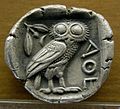Formal epistemology uses formal methods from decision theory, logic, probability theory and computability theory to model and reason about issues of epistemological... 14 KB (1,403 words) - 01:37, 7 April 2024 |
Specialties in epistemology ask questions such as "How can people create formal models about issues related to knowledge?" (in formal epistemology), "What are... 133 KB (13,790 words) - 07:17, 8 May 2024 |
following outline is provided as an overview of and topical guide to epistemology: Epistemology (aka theory of knowledge) – branch of philosophy concerned with... 5 KB (438 words) - 12:08, 30 October 2023 |
property of belief that qualifies it as knowledge rather than mere opinion. Epistemology is the study of reasons that someone holds a rationally admissible belief... 8 KB (940 words) - 14:20, 30 December 2023 |
Bayesian epistemology is a formal approach to various topics in epistemology that has its roots in Thomas Bayes' work in the field of probability theory... 34 KB (4,364 words) - 00:12, 3 January 2024 |
Naturalized epistemology (a term coined by W. V. O. Quine) is a collection of philosophic views about the theory of knowledge that emphasize the role of... 18 KB (2,323 words) - 21:59, 28 April 2024 |
Genetic epistemology or 'developmental theory of knowledge' is a study of the origins (genesis) of knowledge (epistemology) established by Swiss psychologist... 5 KB (588 words) - 00:40, 10 September 2023 |
 | Virtue epistemology is a current philosophical approach to epistemology that stresses the importance of intellectual and specifically epistemic virtues... 24 KB (3,084 words) - 19:39, 8 December 2023 |
Computational epistemology is a subdiscipline of formal epistemology that studies the intrinsic complexity of inductive problems for ideal and computationally... 11 KB (1,321 words) - 01:50, 6 May 2023 |
Evolutionary epistemology refers to three distinct topics: (1) the biological evolution of cognitive mechanisms in animals and humans, (2) a theory that... 8 KB (979 words) - 01:37, 7 April 2024 |
 | Knowledge (category Concepts in epistemology) norms characteristic of the scientific profession. Formal epistemology studies knowledge using formal tools found in mathematics and logic. An important... 205 KB (19,841 words) - 17:37, 9 May 2024 |
from social epistemology (especially concerning the epistemology of testimony, or the epistemology of disagreement), or formal epistemology's use of probability... 7 KB (664 words) - 18:47, 29 April 2024 |
Heuristic (redirect from Formal models of heuristics) biases. Lakatosian heuristics is based on the key term: Justification (epistemology). One-reason decisions are algorithms that are made of three rules: search... 78 KB (8,353 words) - 05:45, 13 May 2024 |
A priori and a posteriori (redirect from A priori (epistemology)) time or causality as particular determinants thereon. The claim is more formally known as Kant's transcendental deduction and it is the central argument... 27 KB (2,904 words) - 15:46, 28 February 2024 |
In philosophical epistemology, there are two types of coherentism: the coherence theory of truth, and the coherence theory of justification (also known... 20 KB (2,690 words) - 22:28, 24 March 2024 |
Feminist epistemology – Fideism – Finitism – Fitch's paradox of knowability – Fooled by Randomness – Formal epistemology – Formative epistemology – Foundationalism... 14 KB (1,214 words) - 10:11, 3 December 2023 |
Alvin Goldman (section Epistemology) name. His approach uses tools of analytic philosophy especially formal epistemology to analyze problems in social knowledge. Some of this work is summarized... 8 KB (785 words) - 09:13, 12 April 2024 |
Rudolf Carnap's logical-positivist conception of the epistemology of science, theories belonging to formal sciences are understood to contain no synthetic... 5 KB (476 words) - 16:30, 30 March 2024 |
we think we know. Whereas both philosophies are under the umbrella of epistemology, their argument lies in the understanding of the warrant, which is under... 60 KB (6,962 words) - 13:24, 7 May 2024 |
Feminist epistemology is an examination of epistemology from a feminist standpoint. Feminist epistemology claims that ethical and political values are... 41 KB (5,130 words) - 18:31, 5 April 2024 |
is an attempt to respond to the regress problem of justification in epistemology. According to this argument, every proposition requires justification... 19 KB (2,352 words) - 21:28, 8 January 2024 |
Social epistemology refers to a broad set of approaches that can be taken in epistemology (the study of knowledge) that construes human knowledge as a... 18 KB (2,374 words) - 01:37, 7 April 2024 |
 | Plato (section Epistemology) eternal, non-perceptible Form. Plato also discusses several aspects of epistemology. In several dialogues, Socrates inverts the common man's intuition about... 89 KB (9,021 words) - 20:20, 12 May 2024 |
Belief (category Concepts in epistemology) mental state of having some stance, take, or opinion about something. In epistemology, philosophers use the term "belief" to refer to attitudes about the world... 103 KB (11,975 words) - 04:04, 7 May 2024 |
 | Empiricism (redirect from Empiricist epistemology) and empirical evidence. It is one of several competing views within epistemology, along with rationalism and skepticism. Empiricists argue that empiricism... 51 KB (6,644 words) - 15:06, 30 April 2024 |
 | Maximilian University of Munich, known for his contributions to formal epistemology. Hartmann received his PhD from Justus Liebig University in Giessen... 3 KB (344 words) - 10:01, 21 January 2024 |
Truth (category Concepts in epistemology) and propositions. The primary target of philosophical skepticism is epistemology, but it can be applied to any domain, such as the supernatural, morality... 105 KB (13,182 words) - 09:06, 12 May 2024 |
 | Willard Van Orman Quine (section Epistemology) publications were on formal logic and set theory. Only after World War II did he, by virtue of seminal papers on ontology, epistemology and language, emerge... 57 KB (6,499 words) - 02:33, 22 April 2024 |


